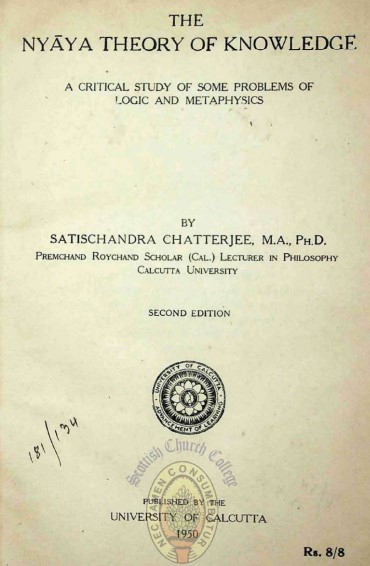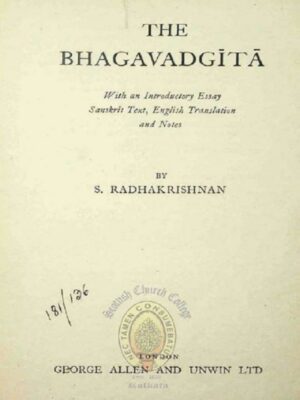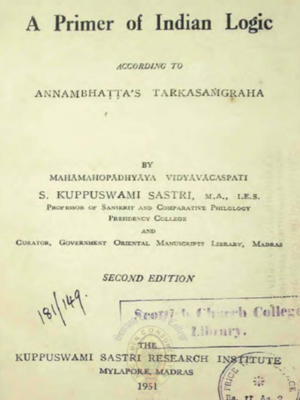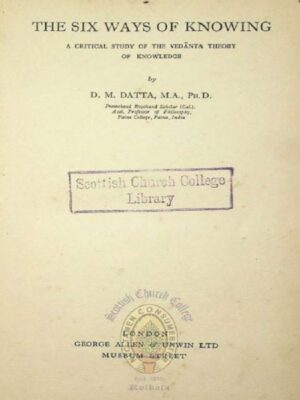Description
The Nyaya Theory of Knowledge: A Critical Study of Some Problems of Logic and Metaphysics by S. C. Chatterjee is a key text in understanding classical Indian philosophy, specifically the epistemological and metaphysical foundations of the Nyaya school. This second edition provides an expanded and refined analysis of the core principles of Nyaya philosophy, focusing on its theories of knowledge and logic.
Chatterjee explores critical topics such as the nature of valid knowledge (prama), the various means of acquiring knowledge (pramanas), including perception (pratyaksha), inference (anumana), comparison (upamana), and verbal testimony (sabda). He also critically examines Nyaya’s contributions to metaphysical debates concerning causality, substance, and self, juxtaposing these ideas with Western logic and philosophy.
The second edition offers further insights and updated discussions on key metaphysical problems and logical arguments, solidifying the work as a vital resource for those studying Indian philosophy. Chatterjee’s clear and systematic presentation makes this work accessible not only to scholars of Indian thought but also to those engaged with comparative philosophy.
This edition is indispensable for students of philosophy, particularly in the fields of logic, epistemology, and metaphysics, offering a deeper understanding of Nyaya’s methodical approach to analyzing and resolving philosophical problems.





